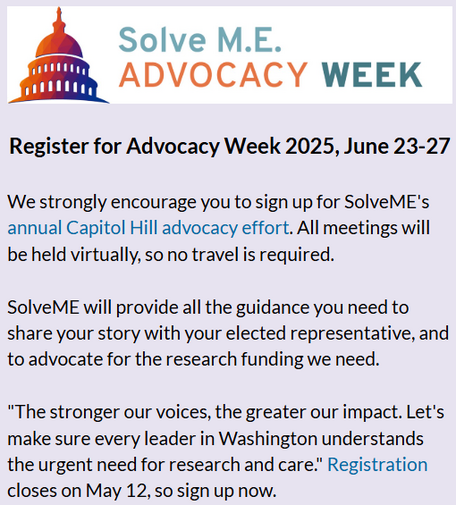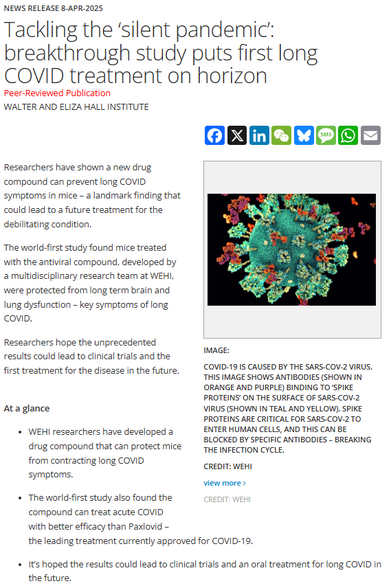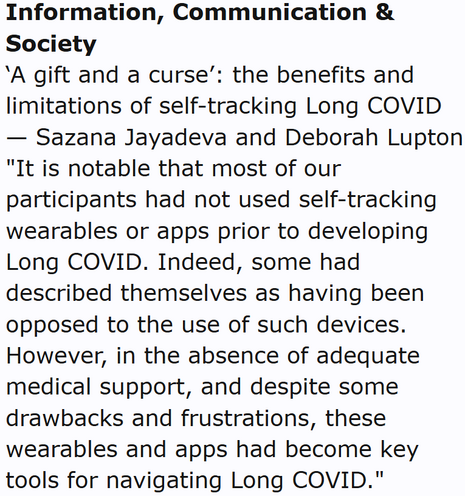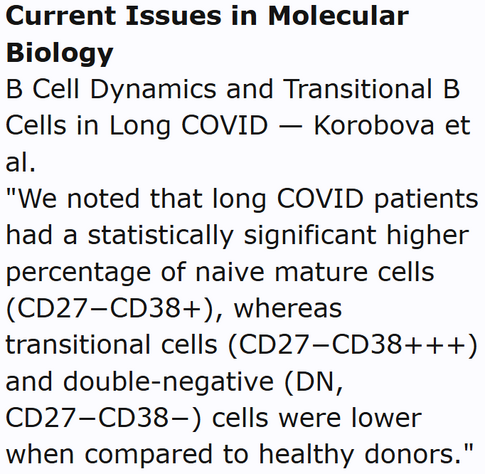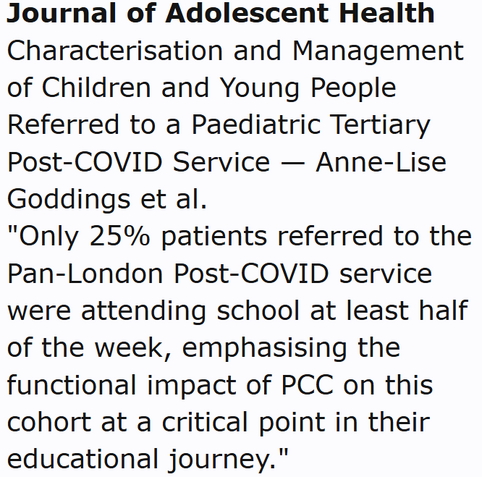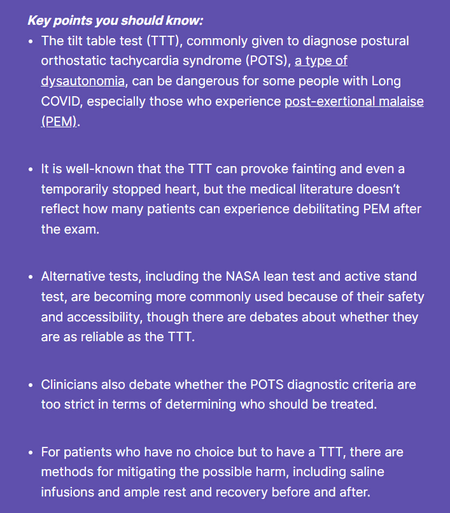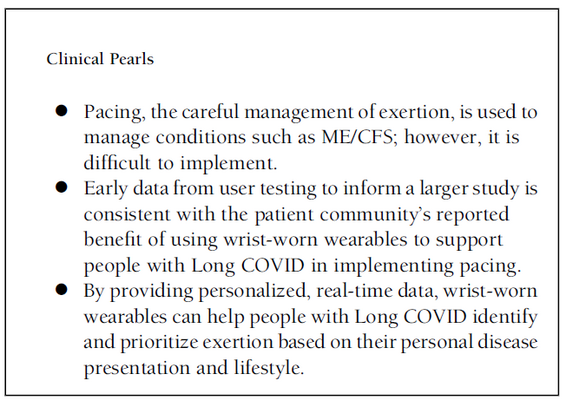medRxiv · 4d Brainstem Reduction and Deformation in the 4th Ventricle Cerebellar Peduncles in Long COVID Patients: Insights into Neuroinflammatory Sequelae and "Broken Bridge Syndrome" Post-COVID Syndrome (PCS), also known as Long COVID, is characterized by persistent and often debilitating neurological sequelae, including fatigue, cognitive dysfunction, motor deficits, and autonomic dysregulation (Dani et al., 2021). This study investigates structural and functional alterations in the brainstem and cerebellar peduncles of individuals with PCS using diffusion tensor imaging (DTI) and volumetric analysis. Forty-four PCS patients (15 bedridden) and 14 healthy controls underwent neuroimaging. Volumetric analysis focused on 22 brainstem regions, including the superior cerebellar peduncle (SCP), middle cerebellar peduncle (MCP), periaqueductal gray (PAG), and midbrain reticular formation (mRt). Significant volume reductions were observed in the SCP (p < .001, Hedges' g = 3.31) and MCP (p < .001, Hedges' g = 1.77), alongside decreased fractional anisotropy (FA) in the MCP, indicative of impaired white matter integrity. FA_Avg fractional anisotropy average tested by FreeSurfer Tracula, is an index of white matter integrity, reflecting axonal fiber density, axonal diameter and myelination. These neuroimaging findings correlated with clinical manifestations of motor incoordination, proprioceptive deficits, and autonomic instability. Furthermore, volume loss in the dorsal raphe (DR) and midbrain reticular formation suggests disruption of pain modulation and sleep-wake cycles, consistent with patient-reported symptoms. Post-mortem studies provide supporting evidence for brainstem involvement in COVID-19. Radtke et al. (2024) reported activation of intracellular signaling pathways and release of immune mediators in brainstem regions of deceased COVID-19 patients, suggesting an attempt to inhibit viral spread. While viral genetic material was detectable, infected neurons were not observed. Matschke et al. (2020) found that microglial activation and cytotoxic T lymphocyte infiltration were predominantly localized to the brainstem and cerebellum, with limited involvement of the frontal lobe. This aligns with clinical observations implicating the brainstem in PCS pathophysiology. Cell specific expression analysis of genes contributing to viral entry (ACE2, TMPRSS2, TPCN2, TMPRSS4, NRP1, CTSL) in the cerebral cortex showed their presence in neurons, glial cells, and endothelial cells, indicating the potential for SARS-CoV-2 infection of these cell types. Associations with autoimmune diseases with specific autoantibodies, including beta 2 and M 2 against G protein coupled alpha 1, beta 1, beta 2 adrenoceptors against angiotensin II type 1 receptor or M1,2,3 mAChR, among others, voltage-gated calcium channels (VGCC) are known (Blitshteyn et al. 2015 and Wallukat and Schminke et al. 2014). These findings support the "Broken Bridge Syndrome" hypothesis, positing that structural disconnections between the brainstem and cerebellum contribute to PCS symptomatology. Furthermore, we propose that chronic activation of the Extended Autonomic System (EAS), encompassing the hypothalamic-pituitary-adrenal (HPA) axis and autonomic nervous system, may perpetuate these symptoms (Goldstein, 2020). Perturbations in this system may relate to the elevation of toxic autoantibodies AABs (Beta 2 and M 2), specific epitopes of the COVID virus's SPIKE protein and Cytokine storm of IL-1, IL-6, and IL-8 in their increased numbers (1,000->10,000) Further research is warranted to elucidate the underlying neuroinflammatory mechanisms, EAS dysregulation, and potential therapeutic interventions for PCS. Keywords: Long COVID, Brainstem, Cerebellar Peduncles, Diffusion Tensor Imaging, Neuroinflammation, Broken Bridge Syndrome, Extended Autonomic System (EAS)
### Competing Interest Statement
The authors have declared no competing interest.
### Funding Statement
This study was funded by OTTO Research Group
### Author Declarations
I confirm all relevant ethical guidelines have been followed, and any necessary IRB and/or ethics committee approvals have been obtained.
Yes
The details of the IRB/oversight body that provided approval or exemption for the research described are given below:
2022-100867-BO-ff 1. Ethics approval was granted by the Ethics Committee of the Hamburg Medical Association, Germany, on September 5, 2022, under the title "MRI Biomarkers in Chronic Fatigue," by Prof. Dr. Rolf Stahl. 2. The project complies with the ethical and professional requirements. The Ethics Committee approves the project. The Ethics Committee operates on the basis of German law and professional regulations, as well as in accordance with ICH-GCP.
I confirm that all necessary patient/participant consent has been obtained and the appropriate institutional forms have been archived, and that any patient/participant/sample identifiers included were not known to anyone (e.g., hospital staff, patients or participants themselves) outside the research group so cannot be used to identify individuals.
Yes
I understand that all clinical trials and any other prospective interventional studies must be registered with an ICMJE-approved registry, such as ClinicalTrials.gov. I confirm that any such study reported in the manuscript has been registered and the trial registration ID is provided (note: if posting a prospective study registered retrospectively, please provide a statement in the trial ID field explaining why the study was not registered in advance).
Yes
I have followed all appropriate research reporting guidelines, such as any relevant EQUATOR Network research reporting checklist(s) and other pertinent material, if applicable.
Yes
All data produced in the present study are available upon reasonable request to the authors All data produced in the present work are contained in the manuscript







